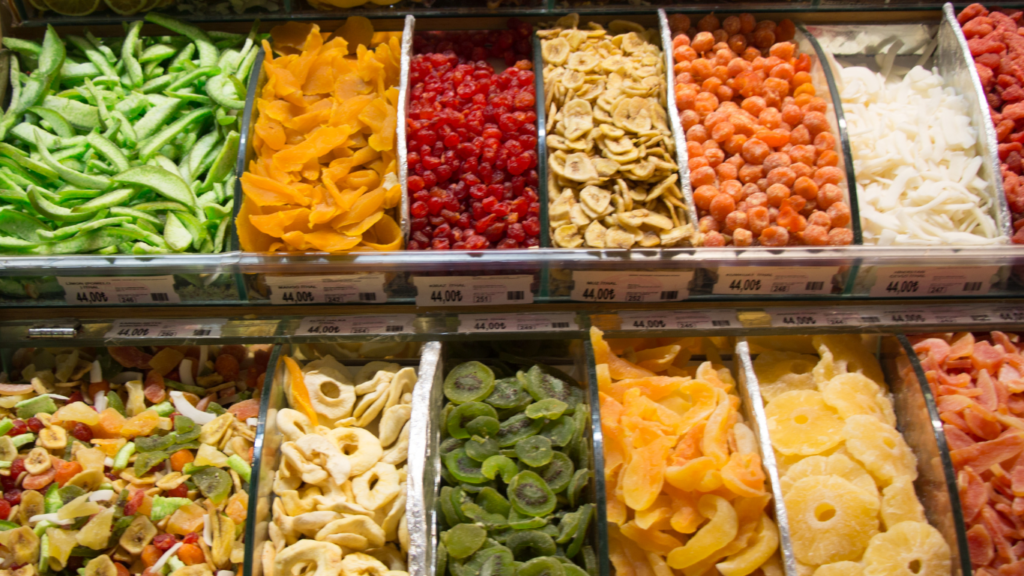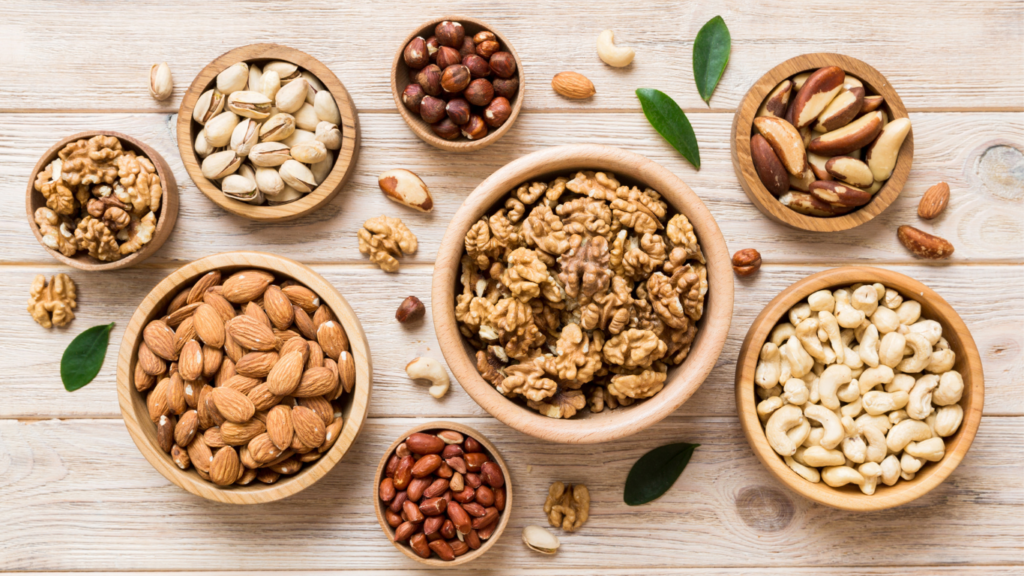Understanding Healthy Snacking
Healthy snacking involves choosing nutrient-dense foods to keep energy levels stable and prevent overeating during meals. I focus on three main factors: nutritional value, portion control, and convenience.
Nutritional Value
I choose snacks rich in vitamins, minerals, fiber, and healthy fats. Examples include almonds, carrots, and Greek yogurt. Such snacks provide essential nutrients without excessive calories.
Portion Control
Portion control is crucial to avoid consuming too many calories. I use small containers or pre-packaged portions to maintain proper serving sizes. For instance, a handful of nuts or a single-serving cup of yogurt can help manage intake effectively.
Convenience
Convenience encourages consistent healthy snacking. I prepare snacks like sliced veggies or fruit in advance to ensure they’re readily available. Keeping snacks in easily accessible places, such as work desks or car compartments, also helps maintain healthy habits.
By combining nutritional value, portion control, and convenience, I make healthy snacking an integral part of my daily routine.
Benefits of Healthy Snacking
Healthy snacking offers several advantages that impact daily well-being and long-term health. It plays a crucial role by ensuring the body gets the right nutrients.
Increased Energy Levels
Consuming nutrient-dense snacks provides a steady energy supply. Foods like almonds, which contain healthy fats, and fruits, which are rich in natural sugars, help maintain energy levels throughout the day. By snacking on these items, I avoid energy crashes and sustain my productivity.
Improved Nutrient Intake
Healthy snacks contribute to a more balanced diet. Incorporating items such as Greek yogurt, which is high in protein, and vegetables like carrots, which are packed with vitamins, enhances overall nutrient intake. These snacks fill nutritional gaps left by regular meals, ensuring I get essential vitamins and minerals.
Weight Management
Smart snacking supports weight control. Portion-controlled snacks prevent overeating and manage calorie consumption. By choosing pre-packaged portions or small containers, I keep my intake in check. This approach helps me avoid the pitfalls of mindless eating and supports my weight management goals.
Smart Choices for Healthy Snacks

Choosing the right snacks boosts overall health and keeps energy levels steady throughout the day. Here are some smart snacking options broken down by categories.
Fruits and Vegetables
Fruits and vegetables are excellent choices for healthy snacking. They’re packed with essential vitamins, minerals, and fiber that support bodily functions and help maintain satiety. Apples, carrots, and kale chips make easy and nutritious snacks. They can be pre-cut and stored in small containers for quick access.
Nuts and Seeds
Nuts and seeds are nutrient-dense and provide healthy fats, proteins, and micronutrients. Almonds, walnuts, and sunflower seeds are portable and satisfying. Be cautious about portion sizes; a small handful is usually sufficient due to their high-calorie content. Pre-packaged portions can help manage intake.
Whole Grains
Whole grains offer sustained energy as they digest slowly, maintaining blood sugar levels. Snacks like:
- whole grain crackers
- oatmeal
- air-popped popcorn
are excellent choices. These options also provide fiber, supporting digestive health. Preparing servings in advance can make them convenient grab-and-go options.
Dairy and Alternatives
Dairy and dairy alternatives are rich in calcium, protein, and other essential nutrients. Greek yogurt, cheese sticks, and almond milk are versatile choices. For those with lactose intolerance or dietary preferences, almond or soy-based products work well. Opt for low-sugar varieties to maximize health benefits. Keeping single-serve portions handy enhances convenience.
By incorporating these smart choices, healthy snacking becomes effortless and beneficial.
Tips for Incorporating Healthy Snacks
Making healthy snacks part of your daily routine is easier with a few strategic tips. Here’s how to ensure your snacks are both nutritious and convenient.
Planning Ahead
- Preparation simplifies healthy snacking.
- I recommend creating a weekly snack plan.
- Include a mix of fruits, vegetables, nuts, and dairy.
- You can wash and chop veggies like carrots and bell peppers in advance, then store them in the fridge for easy access.
- Pre-packaging portions of nuts and seeds can also save time.
Reading Nutrition Labels
Labels are a key source of information. When choosing snacks, I pay attention to serving sizes, ingredient lists, and nutrient contents. I avoid snacks high in added sugars and unhealthy fats. For instance, I choose Greek yogurt with no added sugars over flavored varieties. Checking for whole ingredients ensures the snack’s nutritional value is high.
Portion Control
Maintaining portions prevents overeating. I use smaller containers and pre-portioned packs to manage my intake. For example, I prepare snack-sized bags of almonds instead of eating directly from a large bag. Using measuring cups for snacks like trail mix helps keep portion sizes in check. This method supports my overall health goals by managing calorie intake efficiently.
Common Mistakes to Avoid
In my experience, even with the best intentions, common mistakes can derail healthy snacking habits. Let’s explore these pitfalls and how to avoid them.
Choosing Processed Snacks
Processed snacks are often the go-to for their convenience and taste. Pre-packaged chips, cookies, and crackers can be tempting, but they’re often high in unhealthy fats, sugars, and sodium. These ingredients can lead to weight gain and other health issues if consumed regularly. Instead, it’s better to opt for whole, unprocessed options like fresh fruits, vegetables, and nuts for both better nutrition and taste.
Overeating Healthy Snacks
Overeating can still be an issue, even with healthy snacks. Nuts, avocado, and whole-grain products are nutrient-dense but can be calorie-heavy. If portion sizes aren’t controlled, caloric intake can exceed daily needs, leading to weight gain. Using portion-control tools like small containers or pre-portioned bags helps manage consumption. For example, instead of eating directly from a bag of nuts, measure out a 1-ounce serving to keep portions in check.


 David Boyd brought valuable insights to News Flip Network, contributing his knowledge in business and technology. His work on streamlining the site’s interface and optimizing backend processes ensured that the platform operates efficiently. Boyd's efforts in integrating advanced tools and managing technical aspects played a significant role in the site's reliable and timely news delivery.
David Boyd brought valuable insights to News Flip Network, contributing his knowledge in business and technology. His work on streamlining the site’s interface and optimizing backend processes ensured that the platform operates efficiently. Boyd's efforts in integrating advanced tools and managing technical aspects played a significant role in the site's reliable and timely news delivery.